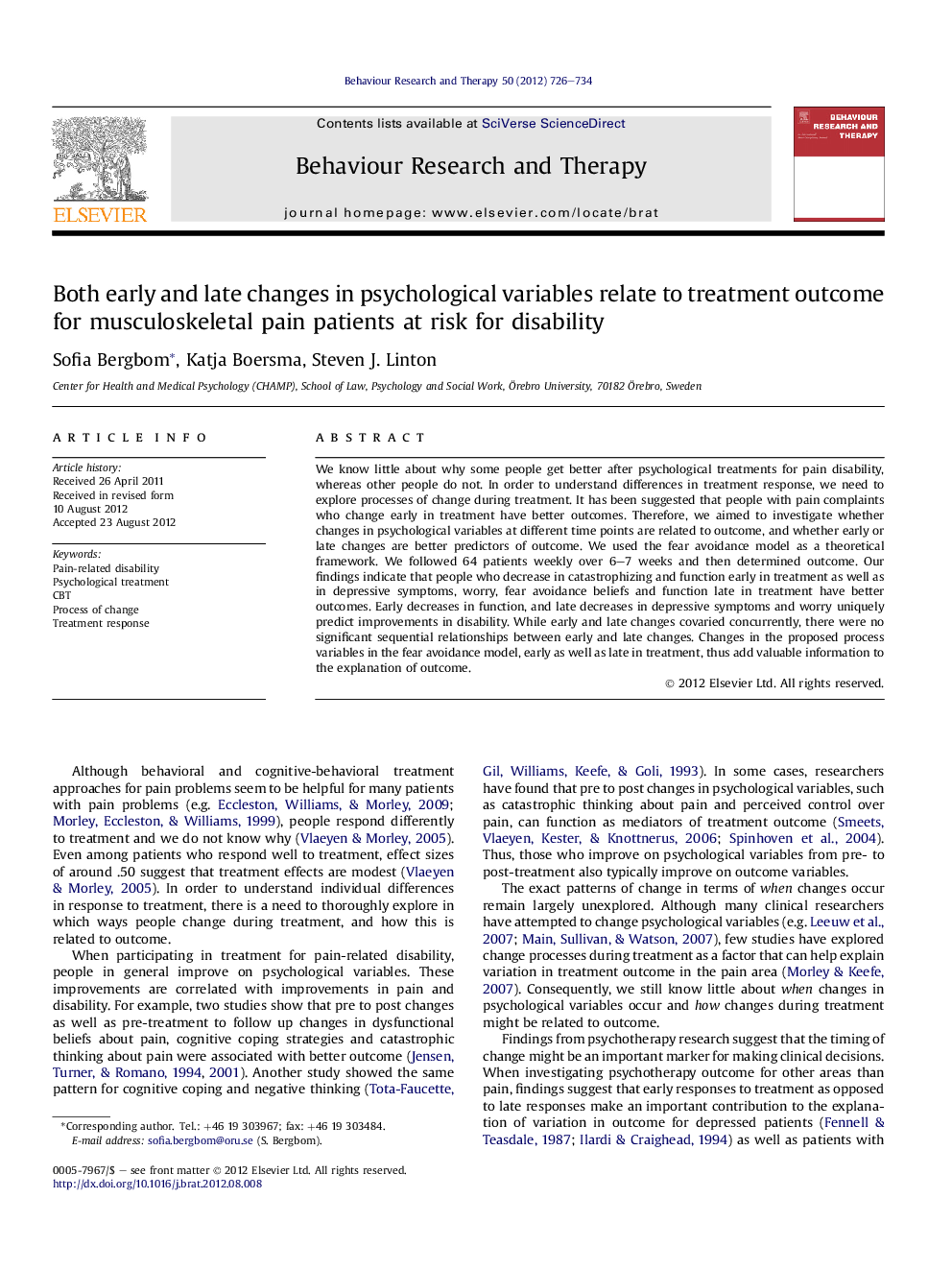| Article ID | Journal | Published Year | Pages | File Type |
|---|---|---|---|---|
| 901969 | Behaviour Research and Therapy | 2012 | 9 Pages |
We know little about why some people get better after psychological treatments for pain disability, whereas other people do not. In order to understand differences in treatment response, we need to explore processes of change during treatment. It has been suggested that people with pain complaints who change early in treatment have better outcomes. Therefore, we aimed to investigate whether changes in psychological variables at different time points are related to outcome, and whether early or late changes are better predictors of outcome. We used the fear avoidance model as a theoretical framework. We followed 64 patients weekly over 6–7 weeks and then determined outcome. Our findings indicate that people who decrease in catastrophizing and function early in treatment as well as in depressive symptoms, worry, fear avoidance beliefs and function late in treatment have better outcomes. Early decreases in function, and late decreases in depressive symptoms and worry uniquely predict improvements in disability. While early and late changes covaried concurrently, there were no significant sequential relationships between early and late changes. Changes in the proposed process variables in the fear avoidance model, early as well as late in treatment, thus add valuable information to the explanation of outcome.
► We know little about why some get better after pain disability treatment, while others don't. ► Using the processes of change during treatment to explain outcome is a compelling idea. ► People who improve in psychological variables during treatment have better outcomes. ► Both early and late changes are of importance for outcome.
